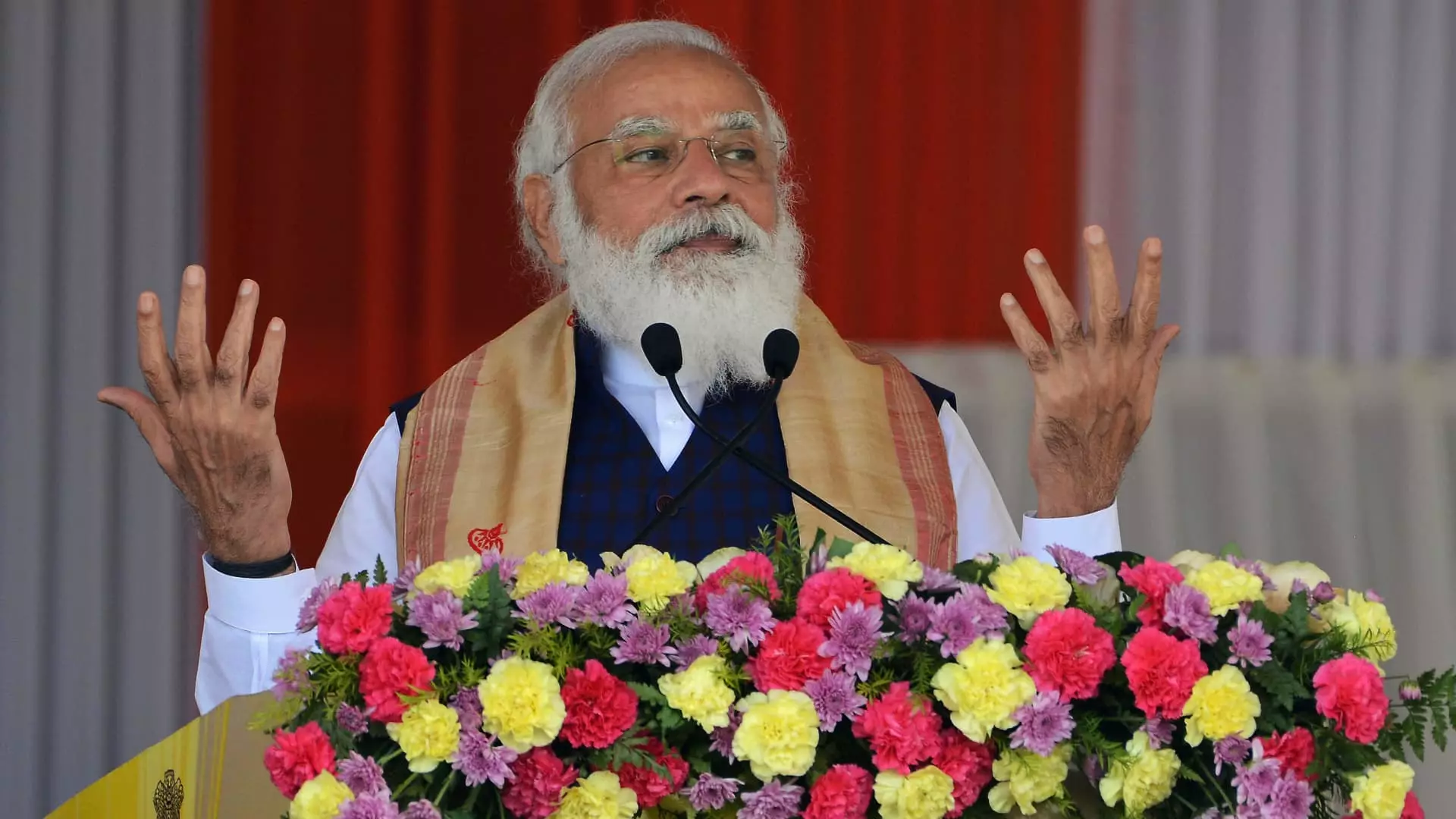India’s Prime Minister Narendra Modi appears to be on track for a rare third consecutive term in power, as local exit polls predict a victory for his Bharatiya Janata Party-led alliance. According to a summary of exit polls by local news channel NDTV, the BJP-led National Democratic Alliance is expected to secure approximately 365 out of the 543 seats in the lower house of parliament. Final results, set to be announced on Tuesday, may differ from exit poll projections, as these polls have been known to be inconsistent in the past.
During Modi’s tenure, India has experienced robust economic growth and an increase in its global standing. With a population of 1.4 billion, India boasts one of the fastest-growing economies globally, with a growth rate of 7.2% in the fiscal year 2022-2023. The International Monetary Fund forecasts further growth for India, predicting a 6.8% increase in 2024 and 6.5% in 2025. This surpasses China’s projected growth of 5% in 2024 and 4.5% in 2025. Some economists are even more optimistic about India’s growth potential, suggesting that a growth rate of 7%-7.5% is achievable. Improving infrastructure, particularly in health care, is expected to be a top priority in driving this growth.
Modi’s Vision for India
In the BJP’s manifesto for the upcoming term, Modi has pledged to propel India into the ranks of the world’s top three economies, combat poverty aggressively, foster new growth opportunities, and combat corruption. While many global leaders are optimistic about India’s economic trajectory under Modi’s leadership, critics and observers have raised concerns about the potential for democratic backsliding in his third term. Issues such as religious tensions, highlighted by Modi’s controversial comments labeling Muslims as “infiltrators,” and rising unemployment have been key topics of debate during the election.
Though Modi expressed confidence in securing a total of 400 seats for the BJP and its allies, analysts believe that maintaining a similar seat count to the 303 seats won in 2019 will have a positive impact on the equity market. Despite Modi’s track record of governance efficiency, challenges such as unemployment and religious tensions continue to pose significant hurdles for his administration. A survey conducted by the Centre for the Study of Developing Societies revealed that 27% of respondents identified unemployment as their top concern, with 62% noting increased difficulty in finding employment over the past five years.
As India awaits the final results of the general election, the future trajectory of the country under Prime Minister Narendra Modi’s leadership remains a topic of both hope and concern. The promises of economic growth and development outlined in Modi’s manifesto must be balanced against the challenges of rising unemployment and religious polarization. The coming years will test Modi’s ability to navigate these complex issues and deliver on the aspirations of the Indian people.

Leave a Reply